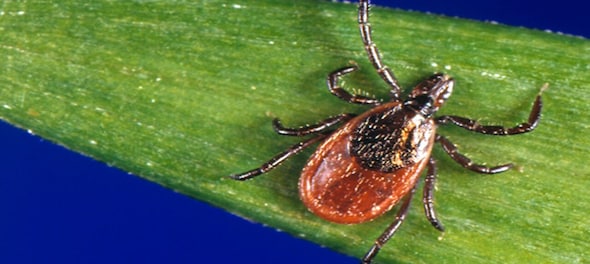
The US health officials have started warning people about a rare virus called 'Powassan virus' following the death of a resident in Sagadahoc County, Maine. The recent fatality marks the third case in Maine since 2015 due to this non-treatable illness transmitted by ticks.
According to the Centres for Disease Control and Prevention (CDC), the Powassan virus is primarily transmitted to humans through bites from infected deer ticks, groundhog ticks, or squirrel ticks.
The virus is not transmitted from person to person, except in rare instances by blood transfusion. It can be transmitted through blood, so people who were recently diagnosed with Powassan virus infection should not donate blood and bone marrow for 120 days following infection, CDC said.
While Powassan virus cases are rare, there has been an increase in documented cases in recent years. Infections have been reported in the United States, Canada, and Russia. The most affected regions are in the Great Lakes area of North America, with transmission occurring between late spring and mid-autumn.
Here are some important details about the symptoms of Powassan virus and how to protect yourself, as mentioned by the CDC:
Symptoms
Diagnosis
Healthcare providers diagnose Powassan virus infection based on:
Treatment
(Edited by : Shoma Bhattacharjee)
Check out our in-depth Market Coverage, Business News & get real-time Stock Market Updates on CNBC-TV18. Also, Watch our channels CNBC-TV18, CNBC Awaaz and CNBC Bajar Live on-the-go!


Prajwal Revanna Sexual Assault Case: Activist raises concerns over political interference, delayed investigation in the matter
Apr 30, 2024 10:17 PM
Lok Sabha Election 2024: Baramati election outcome will decide the future of Pawar dynasty, says expert
Apr 30, 2024 10:08 PM
Lok Sabha elections 2024: Baramati to Mainpuri, key battles in phase 3
Apr 30, 2024 7:01 PM

